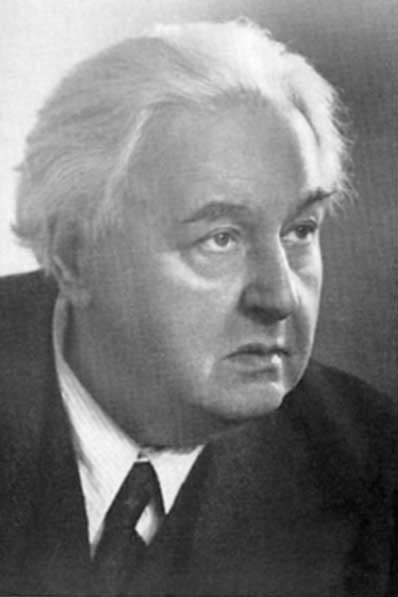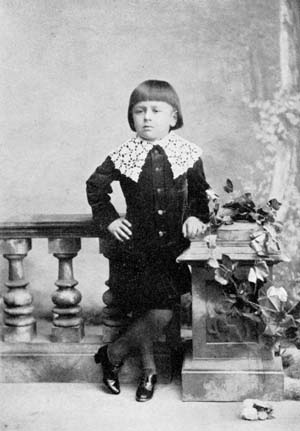|
(1882–1964) Impressionismus  
|

|
||||||||||||||||||||||||||||||||||||||||||
|---|---|---|---|---|---|---|---|---|---|---|---|---|---|---|---|---|---|---|---|---|---|---|---|---|---|---|---|---|---|---|---|---|---|---|---|---|---|---|---|---|---|---|---|
|
(1882–1964) Impressionismus  
|

|
||||||||||||||||||||||||||||||||||||||||||
|---|---|---|---|---|---|---|---|---|---|---|---|---|---|---|---|---|---|---|---|---|---|---|---|---|---|---|---|---|---|---|---|---|---|---|---|---|---|---|---|---|---|---|---|
"The genuine work of art is as organic as a
tree developing out of a seed, growing, blooming; its splendour is
natural yet intangible, a thousand fragments joining, and yet of
unimaginable beauty beyond description..." (Joseph Marx)
Joseph Marx's life briefly:
Joseph Rupert Rudolf Marx (sometimes
incorrectly spelled Josef Marx) was born 11 May 1882 in
Graz/Austria. He first studied music with his mother, then was  educated at Johann Buwa's piano school where - among
many others - Hugo Wolf had also been a student. There he was also
taught to play the violin and meanwhile autodidactically learned
the cello too. His first exercises in composition date from his
time at secondary school when he began to arrange pieces for trio
or quartet from existing themes. In the meantime he had also become
a member of the piano school's ensemble as a piano accompanist. His
parents forbade him to play the piano but he found other ways to
realise his love for music. It was at this time that he began to
compose his first piano pieces and to perform them with the
ensemble of his music school. Before having finished secondary
school he planned (or pretended?) to become a watchmaker while he
was thinking of starting an education in photography, but then he
turned back to secondary school and finally finished his studies.
At Graz University he attended courses in philosophy and art
history after having followed for only one year his father's wish
that he should read law. This decision produced a break between him
and his family. Nevertheless, his strong interest in music made him
continue to compose at the age of 26 so that within only four years
(1908-12) he wrote around 120 songs. His name became known in
Vienna, where in 1914 he was offered the post of professor of
theory at the music academy.
educated at Johann Buwa's piano school where - among
many others - Hugo Wolf had also been a student. There he was also
taught to play the violin and meanwhile autodidactically learned
the cello too. His first exercises in composition date from his
time at secondary school when he began to arrange pieces for trio
or quartet from existing themes. In the meantime he had also become
a member of the piano school's ensemble as a piano accompanist. His
parents forbade him to play the piano but he found other ways to
realise his love for music. It was at this time that he began to
compose his first piano pieces and to perform them with the
ensemble of his music school. Before having finished secondary
school he planned (or pretended?) to become a watchmaker while he
was thinking of starting an education in photography, but then he
turned back to secondary school and finally finished his studies.
At Graz University he attended courses in philosophy and art
history after having followed for only one year his father's wish
that he should read law. This decision produced a break between him
and his family. Nevertheless, his strong interest in music made him
continue to compose at the age of 26 so that within only four years
(1908-12) he wrote around 120 songs. His name became known in
Vienna, where in 1914 he was offered the post of professor of
theory at the music academy.
 In 1922 he became director of the
academy, and he was rector (1924-27) when the institution was
reorganized as a Hochschule fur Musik. He then acted as adviser to
the Turkish government in laying the foundations of a conservatory
in Ankara (1932-33). From 1931 to 1938 he was music critic for the
Neues Wiener Journal and after World War 2 he worked in the same
capacity for the Wiener Zeitung; during World War 2 Marx was the
most frequently performed composer in Austria which becomes
apparent in the fact that he has later been president, chairman or
honorary member of many important Austrian music associations and
societies over two decades until he died 3 Sept 1964 in Graz at the
age of 82. During his 43 years as a teaching professor in
composition, harmony and counterpoint Marx had 1255 students from
all over the world many of which later achieved national and
worldwide fame as composers, conductors, soloists, musicologists
etc. As Marx enjoyed great popularity and much respect during his
lifetime, there is no question that he had an immense impact on at
least two generations of musicians in the
20th century.
In 1922 he became director of the
academy, and he was rector (1924-27) when the institution was
reorganized as a Hochschule fur Musik. He then acted as adviser to
the Turkish government in laying the foundations of a conservatory
in Ankara (1932-33). From 1931 to 1938 he was music critic for the
Neues Wiener Journal and after World War 2 he worked in the same
capacity for the Wiener Zeitung; during World War 2 Marx was the
most frequently performed composer in Austria which becomes
apparent in the fact that he has later been president, chairman or
honorary member of many important Austrian music associations and
societies over two decades until he died 3 Sept 1964 in Graz at the
age of 82. During his 43 years as a teaching professor in
composition, harmony and counterpoint Marx had 1255 students from
all over the world many of which later achieved national and
worldwide fame as composers, conductors, soloists, musicologists
etc. As Marx enjoyed great popularity and much respect during his
lifetime, there is no question that he had an immense impact on at
least two generations of musicians in the
20th century.
![]()
Click here to view a
more detailed biography that I wrote for a small music publisher
 Joseph Marx was a tall and rather strongly
built man. He was considered an excellent pianist who used to
accompany his own compositions on the piano with often quite
demanding piano parts until old age, electrifying critics and
audience alike. His students, acquaintances and colleagues
described him as an out-and-out individualist and, at the same
time, as an open and frank man with a philosophical background and
a subtle sense of humour. He was always described as witty and
eloquent and as someone who knew how to express his thoughts
brilliantly. That is why his lessons were given in a stimulating
and humorous atmosphere where he sometimes told anecdotes about his
encounters with many renowned composers whom he knew or had known
Joseph Marx was a tall and rather strongly
built man. He was considered an excellent pianist who used to
accompany his own compositions on the piano with often quite
demanding piano parts until old age, electrifying critics and
audience alike. His students, acquaintances and colleagues
described him as an out-and-out individualist and, at the same
time, as an open and frank man with a philosophical background and
a subtle sense of humour. He was always described as witty and
eloquent and as someone who knew how to express his thoughts
brilliantly. That is why his lessons were given in a stimulating
and humorous atmosphere where he sometimes told anecdotes about his
encounters with many renowned composers whom he knew or had known
 personally (for example Puccini, Szymanowsky, Franz Schmidt). The
course of his lessons was characterized by improvisation: The
students were not allowed to take notes in order to develop
an intuitive over a mechanical understanding and
practical application. He used to further the talents of his
students in an almost imperceptible way and corrected them only if
they committed technical mistakes. It is also known that Marx gave
private lessons to many of his students in need of additional
support, even in his spare time and without demanding any fee.
Despite his very critical attitude towards the atonal avant-garde
he also praised compositions of young modernists provided that they
could be assigned at least to some extent to tonal music. He was
respected by students and colleagues alike, even by those
advocating a very different musical style. In this context it may
be noted that many of his students coming from different parts of
the globe later achieved national and worldwide fame in their
respective musical line. The fact that the total estate of letters
to Marx consisted of 14589 pieces from 3420 correspondents (!),
including a host of well-known persons, should be a clear
indication of the popularity and the renown of Joseph Marx who due
to several unfortunate circumstances fell into oblivion after his
death.
personally (for example Puccini, Szymanowsky, Franz Schmidt). The
course of his lessons was characterized by improvisation: The
students were not allowed to take notes in order to develop
an intuitive over a mechanical understanding and
practical application. He used to further the talents of his
students in an almost imperceptible way and corrected them only if
they committed technical mistakes. It is also known that Marx gave
private lessons to many of his students in need of additional
support, even in his spare time and without demanding any fee.
Despite his very critical attitude towards the atonal avant-garde
he also praised compositions of young modernists provided that they
could be assigned at least to some extent to tonal music. He was
respected by students and colleagues alike, even by those
advocating a very different musical style. In this context it may
be noted that many of his students coming from different parts of
the globe later achieved national and worldwide fame in their
respective musical line. The fact that the total estate of letters
to Marx consisted of 14589 pieces from 3420 correspondents (!),
including a host of well-known persons, should be a clear
indication of the popularity and the renown of Joseph Marx who due
to several unfortunate circumstances fell into oblivion after his
death.
Compositional style
 The unique "Marx sound" reminds the listener of
Debussy, Scriabin, Delius, Ravel,
Respighi, J. Jongen, Vladigerov, Reger, Schreker,
R. Strauss, Korngold, Brahms, Mahler and Bruckner but
is in the end totally his own. Regarding his Lieder for which he
became famous (these were mainly composed before he was 30 years of
age) he is said to be the rightful successor to Hugo Wolf.
The southern atmosphere in many of his works has its origin from
his mother who was half Italian half Slav. Marx was a late
romantic impressionist whose musical inspiration was nourished
by his deep and spiritual tie to Mother Nature to whom he
wrote so many glorious hymns of love. This is why the mood
of his music is so sensuous, optimistic and even hedonistic, a work
of art created by a happy man who wants to share his delight with
others.
The unique "Marx sound" reminds the listener of
Debussy, Scriabin, Delius, Ravel,
Respighi, J. Jongen, Vladigerov, Reger, Schreker,
R. Strauss, Korngold, Brahms, Mahler and Bruckner but
is in the end totally his own. Regarding his Lieder for which he
became famous (these were mainly composed before he was 30 years of
age) he is said to be the rightful successor to Hugo Wolf.
The southern atmosphere in many of his works has its origin from
his mother who was half Italian half Slav. Marx was a late
romantic impressionist whose musical inspiration was nourished
by his deep and spiritual tie to Mother Nature to whom he
wrote so many glorious hymns of love. This is why the mood
of his music is so sensuous, optimistic and even hedonistic, a work
of art created by a happy man who wants to share his delight with
others.
The following photographs were shot by Martin
Rucker on April 1, 2003.



"In this house lived the composer Joseph Marx
from 1915 to 1964.
Dedicated by the Mozartgemeinde (Mozart Society), Vienna 1965."


Many more photos of places in Austria where Marx lived and worked can be found here... |
|---|
TO LEARN MORE ABOUT MARX'S FATE AS ONE OF THE MOST UNDERRATED MASTERS OF TWENTIETH CENTURY'S MUSIC READ THE FOLLOWING CHAPTERS.
 Nächstes Kapitel
Nächstes Kapitel
|
|
|
EIN NEUJAHRSHYMNUS & BERGHYMNE von Joseph Marx Orchestriert von St. Esser & B. Haydin * * * verlegt bei der Universal Edition * * * Hier weitere Infos und Hörbeispiele (MP3) |
|
Das Grazer Orchester recreation - Großes Orchester Graz spielte unter der Leitung von Michel Swierczewski die HERBSTSYMPHONIE (Stefaniensaal in Graz, Österreich) * * * Erste Aufführung seit fast 80 Jahren * * * Der Autor dieser Website hat diesem seltenen, bedeutenden Ereignis beigewohnt und berichtet hier ausführlich über die großartige Rezeption in der österreichischen Presse |
Die Joseph-Marx-Gesellschaft hat eine eigene Internetseite:joseph-marx-gesellschaft.org
Alle Anfragen an die Joseph-Marx-Gesellschaft (z.B. Spenden- und Beitrittsgesuche) sind an Herrn Berkant Haydin, Generalsekretär der Joseph-Marx-Gesellschaft, zu richten. Da die Gesellschaft sich ausschließlich über private Spenden und Fördergelder finanziert, wird hiermit um rege Beteiligung gebeten. |
| www.joseph-marx.org ist eine von Berkant Haydin gestaltete, rein private Homepage, die im Dienste der Information über Joseph Marx und der Freude an seiner Musik steht. www.joseph-marx.org ist nicht mit der o.g. Website der Joseph-Marx-Gesellschaft zu verwechseln. |
|---|